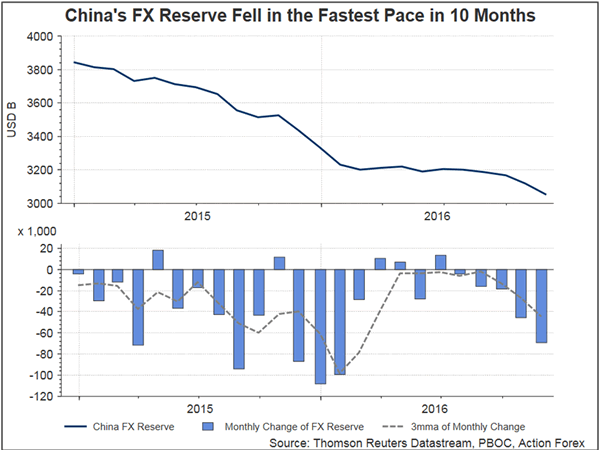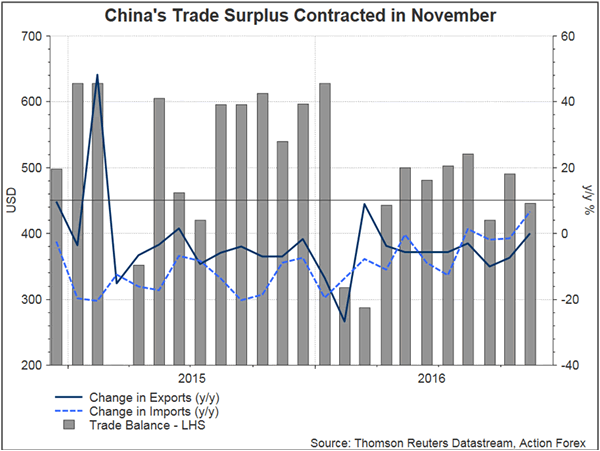Recent releases in China’s November macroeconomic indicators suggest that growth continue to stabilize. Yet, weakness in renminbi means that capital outflow should remain a headache. China’s growth in industrial production (IP) improved to +6.2% y/y in November, from +6.1% a month ago. This came in better than consensus of +6.1%. Retail sales expanded +10.8% y/y in November, compared with expectations of +10.2% and +10% in October. Indeed, this is the fastest pace of consumer spending growth so far this year. A key contributor to the upside surprise was auto sales, thanks to government tax incentives. Meanwhile, ‘single’s day earlier in November also helped boost sales of electronics and telecom products. Urban fixed assets investment gained +8.3% in the first 11 months of the year, unchanged from the year through October. This came in line with expectations.
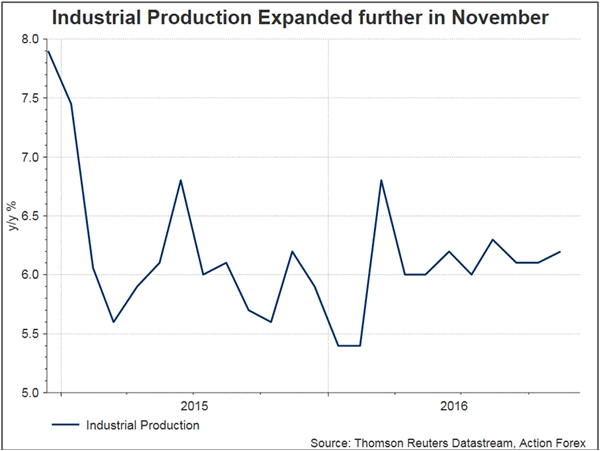
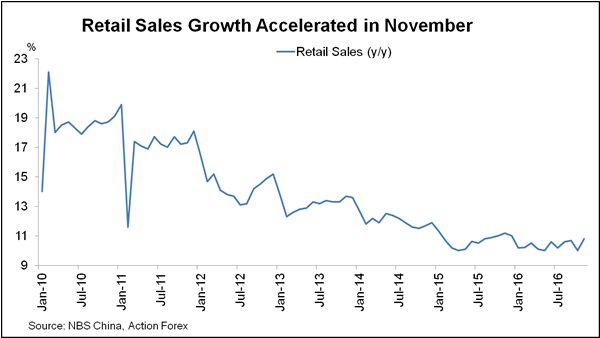
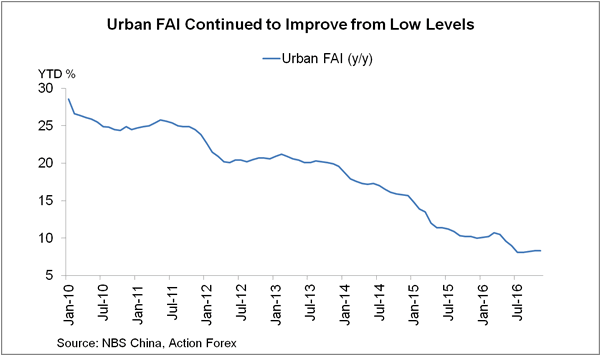
On inflation, headline CPI accelerated to +2.3% y/y in November from +2.1% a month ago. The improvement mainly came from the food inflation which rose to +4% y/y from October’s +3.7%. This was in turn driven by the large +15.8% gain in vegetable price. Core CPI also rose to a 3-year high to +1.9% y/y, from +1.8% in October. This compares with January’s low of +1.2%. PPI inflation rallied to +3.3% y/y from +1.2% in October. This beat expectations of +2.3%. The month-over-month rally (+10.3%) of coal and mining materials prices was the biggest driver. The recent trend suggests that risks on inflation for the coming year is skewed to the upside and rising inflation would also push the nominal GDP growth higher.
The country’s FX reserve continued to decline, shrinking –US$ 69.1B to US$ 3.05 trillion, in November. Capital outflow in China continued and has been worsened by persistent depreciation in renminbi. USD’s rally has exacerbated the weakness in renminbi with USDCNY soaring to the highest level since 2008 last month. Besides selling foreign currencies to support renminbi, the Chinese government has tightened capital control. A Reuters report last week suggested that the State Administration of Foreign Exchange (SAFE) had begun vetting transfers abroad worth US$5M or above and was increasing scrutiny of major outbound deals. In response to the restrictions, the American chamber noted that it was ‘concerned about the added burden such approval requirements may potentially have on our member companies’ ability to move money overseas’. The EU Chamger criticized that ‘the unpublished window guidance on the control of capital outflow is disruptive to EU companies’ regular business operations’
